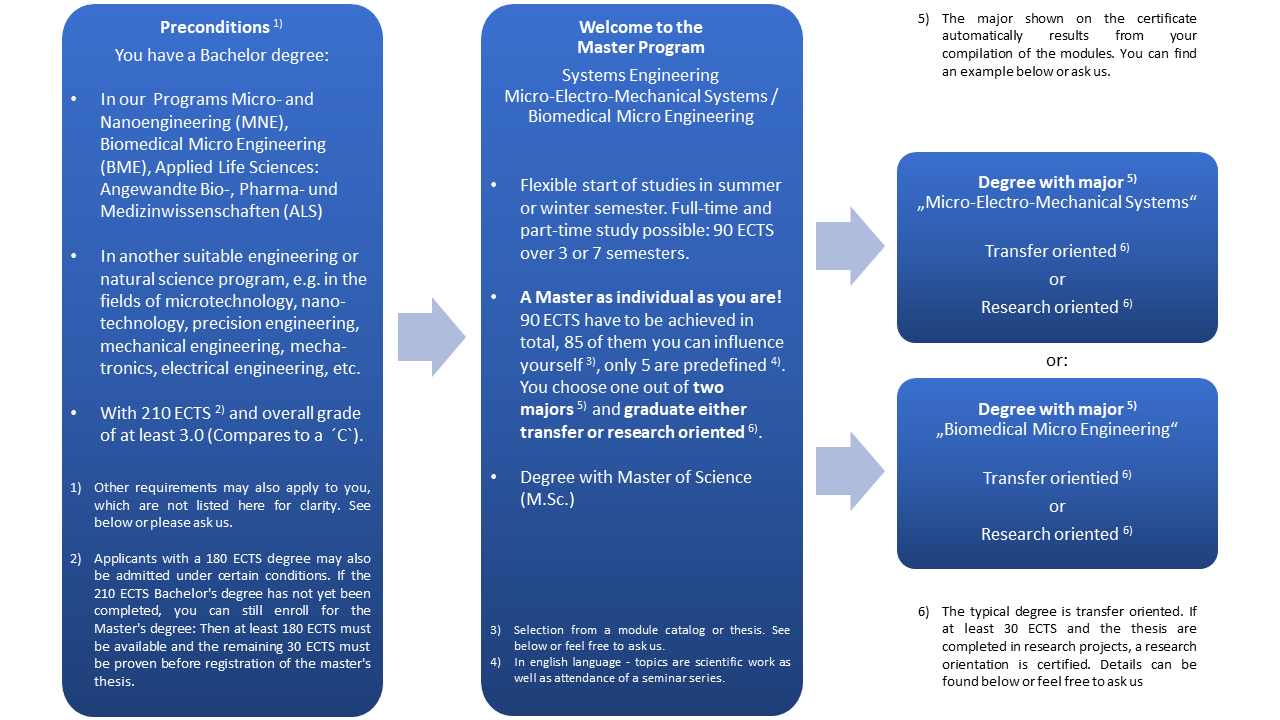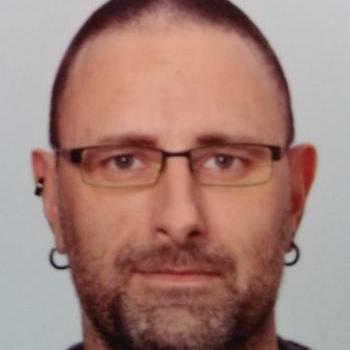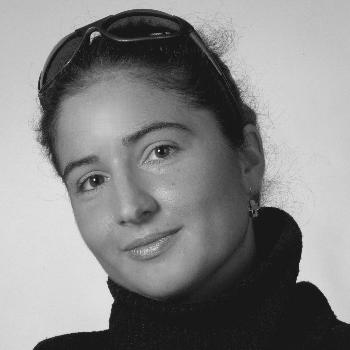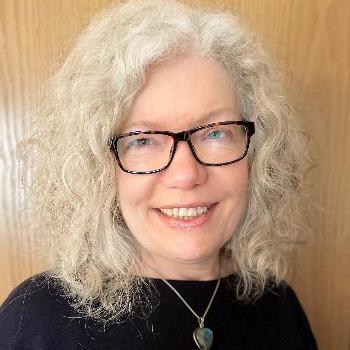Join „the world’s most critical technology“
(Chip War by Chris Miller)
Master Systems Engineering for Micro-Electro-Mechanical Systems or Biomedical Micro Engineering
A study program as individual as you are!
Are you interested in any of the following keywords? Micro Electro Mechanical Systems (MEMS), Microsystems Engineering, Microchips, Micromechanics, Semiconductors, Internet of Things (IoT), Industry 4.0, Smart Home, Mobility, Drones, Beamers, Smartphones, Digital Engineering, Biomedical Engineering, Life Sciences, Lab on Chip, Biosensors, Clean Room, AVT, Packaging, Test, Fab, Foundry, Quality Management, Project Management, Simultaneous Engineering? Then use your skills and study Systems Engineering for MEMS or BME at the Zweibrücken Campus of Kaiserslautern University of Applied Sciences!
Our Master's program is aimed at all engineers and scientists who understand or want to understand something of the above-mentioned terms and want to prepare themselves more intensively for this future. This group includes graduates of "our" internal bachelor's degree programs MNE, BME, ALS as well as engineering degree programs with similar content - very welcome also from other universities. The following figure shows schematically the principle structure of the Master.
That's why you should study Systems Engineering for MEMS or BME at Kaiserslautern University of Applied Sciences:
Our Master is different - a Master as individual as you are! With us, the course is not predetermined, but you choose from modules and thus compose your individual course of study. 90 ECTS have to be achieved in total, 85 of them you can influence yourself, only 5 are predetermined. There are two possible emphases, which automatically result from the choice of modules. Your degree can be application-oriented or research-oriented.
The Systems Engineering for MEMS or BME degree program is highly customizable. You choose your desired modules from a catalog. Out of a total of 90 ECTS, modules of 55 ECTS can be freely selected from a catalog. Of these, 30 ECTS are taken in the summer semester and 25 ECTS in the winter semester. The modules are 5 / 10 / 20 or 30 ECTS, self-contained and take place within one semester. There are only two compulsory modules for the remaining 45 ECTS. The larger of these is the Master's thesis with 30 ECTS, where you have considerable influence on the content. The smaller of the mandatory modules is the two-semester, English-language module "Scientific Writing and Attendance of the Seminar Series" with 5 ECTS.
90 ECTS = 85 ECTS customizable + 5 ECTS mandatory module
85 ECTS = 55 ECTS freely selectable + 30 ECTS master thesis
55 ECTS = 30 ECTS in the summer semester + 25 ECTS in the winter semester
You can individually compose your studies by choosing the modules of your choice. A focus can be formed in "Micro-Electro-Mechanical Systems (MEMS)" or "Biomedical Micro Engineering (BME)". The emphasis shown on the certificate automatically results from the choice of modules, which "count" to the emphasis to varying degrees.
There are different module types to choose from:
- Lecture modules with 5 or 10 ECTS
- Application module with 10 / 20 / 30 ECTS
- Research and development module with 10 / 20 / 30 ECTS
- Mobility semester/trimester
Each module contributes to the formation of a focus.
The degree program is generally considered to be application-oriented. If you would like to sharpen your individual profile, there is the option of application modules, within which a project can be worked on in a focused manner.
The application module is about strengthening the engineer in you and giving you the opportunity to individualize and focus on specific topics. Compared to the research/development module, the focus in the application module is on solving a problem rather than finding fundamentally new knowledge. Therefore, the application module does not count toward the achievement of a research-oriented degree.
There is a 10 / 20 / 30 ECTS module. The module can be done externally (company, institute, partner university) as well as at Kaiserslautern University. This is especially interesting if you study "with a company", for example. However, the project must be suitable.
Details:
- Before the more in-depth application modules (20/30 ECTS) can be taken, the 10 ECTS application module must be passed. The head of the study program decides in consultation with the supervising examiner whether the planned project is recognized as an application module. Both also determine the weighting number for the corresponding application module.
- The degree may be research-based. By agreement, up to two research & development modules can be taken in the entire course of study (one R&D module per semester). If more than 20 ECTS are earned in R&D modules and, in addition, the Master's thesis is research-oriented, the degree is also research-oriented. Click here for more information.
The research module is about strengthening the researcher in the student and giving the opportunity to individualize and focus on specific topics. Compared to the application module, the focus is more on finding fundamentally new knowledge and testing new theses than on solving a problem.
There is a 10 / 20 / 30 ECTS module. The module can be done externally (company, institute, partner university) as well as at Kaiserslautern University. This is especially interesting if you study "with a company", for example. However, the project must be suitable.
Details:
- Bevor die tiefergehenden Forschungs-/Entwicklungsmodule (20/30 ECTS) belegt werden können, muss das 10 ECTS Forschungs-/Entwicklungsmodul bestanden sein.
- Beispiele zu Forschungsprojekten: Integrierte Miniaturisierte Systeme
- Die Studiengangsleitung entscheidet im Einvernehmen mit der/dem betreuenden Prüferin/Prüfer, ob das geplante Projekt als Forschungs-/Entwicklungsmodul anerkannt wird. Beide legen auch die Gewichtungszahl für das entsprechende Forschungsmodul fest.
Ab dem zweiten Semester kann alternativ zum bestehenden Lehrangebot, nach individueller Absprache, ein Mobilitätsmodul als Semester an einer ausländischen Hochschule belegt werden.
Für das Mobilitätsmodul ist vorab ein Learning Agreement mit dem Prüfungsausschuss zu vereinbaren. Im Rahmen des Mobilitätsmoduls können auch forschungsorientierte Leistungen entsprechend den Voraussetzungen der Forschungsmodule erbracht werden. Dies ist im Learning Agreement zu vereinbaren. Die forschungsorientierten Leistungen werden im erbrachten Umfang für die Feststellung, ob das Studium forschungsorientiert absolviert wurde, berücksichtigt.
Informationen über unsere Partnerhochschulen finden Sie auf der Seite des International Office. Mobilitätsmodule können auch an nicht-Partnerhochschulen belegt werden.
Im Rahmen des Mobilitätmoduls bieten wir Ihnen die Möglichkeit in Kooperation mit der Universität Hasselt in Belgien am „Postgraduate Programme in Innovation and Entrepreneurship in engineering“(PION), teilzunehmen.
As a graduate you will be able to:
- build on the basic engineering knowledge acquired in the bachelor's degree program, apply in-depth fundamentals and specialist knowledge in an interdisciplinary and holistic manner
- to grasp different fields of engineering sciences in a networked way, to independently formulate future tasks in German or English and to further develop their solutions on the basis of fundamentals
- select, adapt and apply scientific methodology (determine, use and transfer the state of the art and develop new solutions from it)
- build models and interpret the results obtained
- weigh up conflicting approaches and develop optimized solutions
- independently deepen, disseminate and update their knowledge theoretically and scientifically
- evaluate the economic consequences of various alternative solutions
- to summarize their problems, solution approaches and optimized solutions in a written, scientific elaboration, to present them with suitable methods, and to represent them constructively against resistance,
- to work actively in intercultural teams, to motivate team members and to assume leadership responsibility,
- to carry out projects, also in intercultural teams, in a scientifically methodical way, to document them and to present the results in German or English language.
As a graduate of the master's program Systems Engineering for MEMS or BME, you will have in-depth engineering fundamentals in the fields of Micro-Electro-Mechanical Systems (MEMS) or Biomedical Micro Engineering (BME), knowledge of industry-specific working methods and procedures, and a broadening of your specialist education. You will be able to consider issues in the fields of MEMS and BME in a networked manner, to grasp and analyze problems holistically and interdisciplinarily, and to develop optimized solutions on your own responsibility, taking into account economic, social, and intercultural aspects. You will be able to convincingly apply your acquired knowledge, skills and competencies in your professional environment.
Methodologically, as a graduate who completes the program with an application-oriented focus, you will be able to work on a current application-related engineering topic from the field of MEMS / BME, starting from an overview of the current state of the art. You will be able to work this up experimentally and/or simulatively and define an approach to develop new practice-oriented solutions. In particular, you will be able to deal with and classify practical professional requirements and apply acquired subject-specific knowledge and skills to known and new problems.
As a graduate who completes the degree program with a research orientation, you are methodologically capable in particular of independently and purposefully carrying out research projects using scientific research methods and strategies experimentally and/or simulatively and of applying scientific procedures from various disciplines. Based on a sound knowledge of the current state of the art, you will be able to classify current engineering research developments in the field of MEMS / BME, weigh solution approaches against each other and independently develop new or optimized solutions for a complex problem.
The Master of Science degree qualifies students for doctoral studies and for access to the careers of the higher federal and state civil service.
We offer you the opportunity to gain practical experience in a foreign company during your studies. In cooperation with the University of Hasselt in Belgium, you can participate in the "Postgraduate Programme in Innovation and Entrepreneurship in engineering" (PION). During your master studies, as part of the mobility module. Upon successful completion of the program, you will receive the Postgraduate Certificate in addition to the Master's certificate. Click here for more information.
PION consists of a total of 30 ECTS:
- 20 ECTS you will receive for a project you will carry out in a Belgian company. The company is arranged through the university in Hasselt.
- For this project you have to choose courses from the block "Innovation, entrepreneurship and professional skills" for at least 3 ECTS.
- The remaining ECTS you can choose from courses of the English language master programs of Hasselt University.
Prerequisites:
- Proof of English: TOEFL iBT with at least 79 points or IELTS Academic with at least 6.5 points.
- 30 CP in the master program Systems Engineering
The path to the Postgraduate Certificate:
- Application to UHasselt with CV, letter of motivation by email to karine.evers(at)uhasselt(dot)be.
- Enrollment as a student at UHasselt and payment of the tuition fee of 604,50 €.
- Search for a project at a company with the help of UHasselt
- Start of the program
It is also possible to take subjects from the English-language engineering master's programs (Study guide- UHasselt).
For more information, visit Home (innoverendondernemen.be).
At a glance
PO Version
2022
Degree
Master of Science
Study Type
Konsekutiver Studiengang, Präsenzstudium
Study Model
Vollzeitstudium
Campus
Zweibrücken
Faculty
Computer Sciences and Microsystems Technology
Normal period
3 Semester
Requirements
Die verbindliche Beschreibung der Zugangsvoraussetzungen finden Sie in der Allgemeinen Master-Prüfungsordnung (AMPO) und der Fachprüfungsordnung (FPO).
Auszüge:
Voraussetzung für die Zulassung zum Masterstudium ist der Nachweis eines berufsqualifizierenden Hochschulabschlusses in einem der Bachelorstudiengänge Micro- and Nanoengineering (MNE) bzw. MNT, Biomedical Micro Engineering (BME), Applied Life Sciences: Angewandte Bio-, Pharma- und Medizinwissenschaften (ALS) an der Hochschule Kaiserslautern im Umfang von 210 ECTS mit einer Note von mindestens 3,0 sowie das Vorliegen der Eignung. Die Eignung für das Master-Studium wird im Bewertungsverfahren gemäß der FPO aus der fachlichen und persönlichen Eignung ermittelt.
Für den Master-Studiengang kann sich auch bewerben, wer einen berufsqualifizierenden Hochschulabschluss in einem anderen Studiengang an einer staatlichen oder staatlich anerkannten Hochschule im Umfang von 210 ECTS erworben hat, den die Zulassungskommission als inhaltlich verwandt bestätigt hat. In diesem Fall können weitere Auflagen zur Erfüllung der Zulassungsvoraussetzungen festgesetzt werden In diesem Fall können weitere Auflagen zur Erfüllung der Zulassungsvoraussetzungen festgesetzt werden.
Es können auch Studienbewerber*innen zugelassen werden, die einen o.g. Studiengang im Umfang von weniger als 210 ECTS-Punkte aber mindestens 180 ECTS nachweisen, sofern die fachliche Eignung nach FPO vorliegt.Sofern Studienbewerber*innen es beantragen, kann der Prüfungsausschuss in Absprache mit diesen zusätzlich zu erbringende Leistungen im Umfang der fehlenden ECTS-Punkte bestimmen. Für die Erbringung dieser zusätzlichen Leistungen gelten die Regelungen der FPO und der jeweils aktuell geltenden AMPO der Hochschule Kaiserslautern.
Ein Zugang zum Studium vor Abschluss eines Bachelorstudienganges ist unter bestimmten Voraussetzungen auch vor Abschluss eines berufsqualifizierenden Hochschulabschlusses möglich.
Alle Bewerberinnen und Bewerber mit ausländischen Hochschulzugangsberechtigungen, die auf 210 ECTS Bachelor-Niveau bewertet werden, benötigen für die Einschreibung zum Studium den Nachweis von Deutschkenntnissen durch ein allgemeinsprachliches Prüfungszertifikats B1 (GER) eines anerkannten Sprachinstituts (z. B. telc, Goethe-Institut, TestDaF); bei ausländischen Hochschulzugangsberechtigungen, die auf 180 ECTS Bachelor-Niveau bewertet und unter Auflagen gemäß Absatz 3 zugelassen werden, sind Deutschkenntnisse entsprechend der Einschreibeordnung auf C1 Niveau nachzuweisen. Alle Bewerberinnen und Bewerber, deren Muttersprache nicht Englisch ist, benötigen einen Nachweis durch ein allgemeinsprachliches Prüfungzertifikat B2 (GER) eines anerkannten Sprachinstituts (z. B. IELTS, TOEFL). Als Sprachnachweis kann anerkannt werden, wenn Bewerberinnen und Bewerber im berufsqualifizierenden Hochschulstudium gemäß Absatz 1 bereits Module in deutscher oder englischer Sprache bestanden haben, so dass von ausreichenden Sprachkompetenzen ausgegangen werden kann. Darüber entscheidet die Zulassungskommission.
Pre Placement
Start Informations
Wintersemester und Sommersemester
Teaching Language
Deutsch / Englisch
Accreditation
Hochschule Kaiserslautern
There are some boundary conditions for the choice of modules:
- As part of the application, you indicate your favorite modules. However, there is no guarantee that all modules can actually be offered. Please be prepared for this with backup modules.
- A module is then finally considered chosen when you register for the exam. Depending on the module, the registration deadline for the exam may be relatively early in the semester.
- 15 ECTS must be earned through lecture modules - So not only application/R&D/mobility modules can be taken.
- For application or research/development modules: Please contact professors early or take care of these modules independently.
- Modules may require certain entry requirements - Please ensure that they have the necessary foundation to attend the chosen module. The prerequisites can be found in the module handbook.
Not only our campus in Zweibrücken has a lot to offer, the city also convinces with its charm. Zweibrücken offers you many opportunities to find a balance from your daily study routine.
Zweibrücken is very familiar and close to home due to its 34,000 inhabitants. Due to its special location, the city of roses forms a middle center of the many surrounding communities. In addition, the city is located directly on the border of France.
Culture and tourism are not neglected here. Annual events such as the city festival, various concerts or theater performances are firmly anchored. Furthermore, countless activities are offered. These range from climbing, hiking and bowling to shopping in one of the most famous outlets in Germany. But also a cozy evening out in one of the numerous cafes and bistros is possible. Let the "Zwebrigger Dialect" convince you!
| Recreation | Due to the many recreational facilities, there is always something to experience. Here is a small selection:
|
Sports
| Support the regional clubs and teams. Whether ice hockey, handball, soccer, judo, athletics or horse racing and jumping tournaments take place on a regular basis. Do you prefer to be active yourself? The choice of clubs and memberships is limitless! |
| Events and celebrations | With the many events throughout the year, there is never a dull moment in Zweibrücken.
|
| Hiking | Nestled between the biosphere reserves Pfälzerwald, Vosges and Bliesgau, Zweibrücken offers a variety of hiking trails.
|
| Shoppen | The outlet is particularly well known, but also the many small boutiques and stores in the pedestrian zone invite you to stroll and store. |
Similar courses of study
| Applied Life Sciences | The program integrates modern areas of life sciences such as stem cell technology and tissue engineering with frontier sciences from the nano- and micro-areas. The program is mainly offered at the Zweibrücken Campus, but individual courses in pharmaceutical engineering and toxicology are held at the Pirmasens Campus. |
| Informatik | You have successfully completed a bachelor's degree program in computer science? You want even more - to deepen and expand your knowledge, to push the boundaries of the science of computer science? Let us be the companions on your way to a Master of Science degree! |





